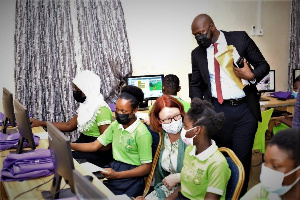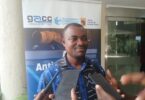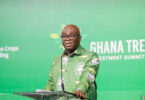Source: GNA
The Ghana Investment Fund for Electronic Communications (GIFEC) is a partnering with the International Telecommunications Union (ITU), the Norwegian Agency for Development Cooperation (NORAD) and Cisco to implement the Digital Transformation Centres (DTC).
The partnership forms part of a broader goal of building an inclusive digital society, where lack of digital skills should not be a barrier to participation in the digital economy.
The DTC project aimed at building a digitally literate citizenry to boost their ICT capabilities to enable them to participate meaningfully in the knowledge society.
Mr Prince Ofosu Sefah, Administrator of GIFEC, was speaking at the opening and inspection of coding for Girls training at Ashiaman.

GIFEC collaborates with partners to provide coding skills for girls
The project involves training of beneficiaries, spanning persons in the formal and informal sectors; students, teachers, training for women and girls, youth, and the marginalised in communities such as head porters, school dropouts and school leavers, in specially designed CISCO certified courses.
He said it was designed to develop digital skills, mainly at the basic and intermediate levels, particularly in underserved communities, and featured courses like Introduction to Cyber security, Cyber Security Essentials, Introduction to IoT, Python, C and Entrepreneurship.
The Administrator said it was worthy to note that the first phase of the project, which took place within the first half of 2021, with the training of 23 Master Trainers, who in turn trained Community ICT Centre Managers, who served as facilitators for the project.
It also completed training in all 15 Zones, encompassing all 16 Regions of the country, in 88 training centres across the country, 4,178 participants trained.
He said a key component of this programme was the formation of Coding Clubs for Girls.
Accordingly, 16 teachers from across the country were trained in Coding in the just-ended training of trainers programme held in Kyebi.
These teachers will be responsible for training over 1,000 girls through the creation of a 32-member Coding Club in their respective schools for girls, each year, for a period of two years.
He expressed appreciation to the partners for the contribution and support to GIFEC in the vigorous pursuit of their mandate of leading the charge to achieve Universal Access to Digitisation.
Mr Sefah said currently, through the unprecedented support of government to bridge the Digital Divide, “we are deploying telecommunication infrastructure to over 2016 through our flagship Rural Telephony and Digital Inclusion Project.”
The project seeks to provide telephony and data connectivity to over 3 more million Citizens across the country.
He said they had also enabled the teaching and learning ICT in over 1,000 schools across the country through their Schools Connectivity Project which provides ICT resources like computers and accessories to these schools.
The Administrator said skills development was a crucial part of digital inclusion and digitalisation, as it empowered individuals to take advantage of opportunities available in the ICT eco-space and maximise productivity.
Over the years, GIFEC has contributed immensely to building ICT literate citizens who can partake effectively in today’s knowledge society.
“We have trained over 500,000 people spanning students, teachers, artisans, in various ICT courses,” he added.
Source: GNA







